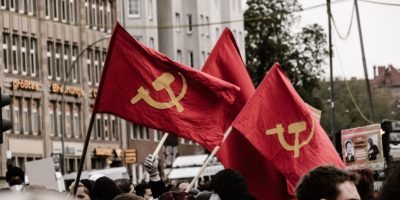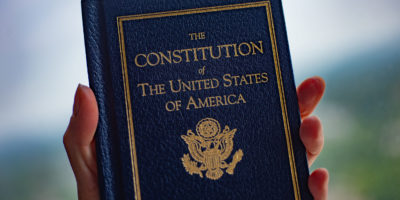The origins of our current Cultural Revolution
“Never forget class struggle!” proclaimed Mao in Fall 1962 at the Chinese Communist Party’s annual retreat. This maxim quickly became the fevered chant of the day, paving the way for the Cultural Revolution, which began in 1966 and continued until Mao’s death in 1976. This slogan defied reality and logic: How could class struggle persist when there was no private ownership left in China? But the slogan appealed to sentiment, not logic, and thus persisted.
If modified into “Never forget race struggle,” the command has the same appeal in today’s woke America, and serves the same purposes, even though there is no evidence that race is a barrier impeding individual effort in America today, or that it is decisive in distributing outcomes.
Maoist tactics, rhetoric, and symbols have been adopted in BLM protests and riots, “anti-racist” self-education doctrine, and the promotion of “critical race theory” (CRT) in schools, corporations, the government, and even the military. As a student of the totalitarianism of Mao’s China—which was exceptionally effective in peddling propaganda and staging performances of feigning, preening, and indignation—I find woke America’s reinvention of Maoism fascinating and terrifying. Mao is the unsung hero for contemporary CRT intellectuals.
Maoist Wokeism
Maoism differs from orthodox Marxism, which holds that the economic base of a social system determines its superstructure, i.e., culture, language, and ideas. Class war thus comes to an end once the state owns the means of production. Maoism insists that the abolition of private property won’t necessarily transform the superstructure; rather, the Maoist revolution must be kept in constant motion. There is no end to fighting “class enemies,” much as the evangelists of CRT project no concrete consummation of the war on racism.
Just as the Maoist label “class enemy” was intentionally kept vague and its usage promiscuous, woke concepts such as “systemic racism” are meant to deceive and divide. “c” is invoked as the sole cause wherever disparities of outcome among different groups exist; neither the act or intention of racism matters, except for the “implicit bias” as suggested by the equally unproven and unprovable assumption of “white fragility.”
Epistemology starts with basic and general presuppositions which are not imposed externally but emerge organically through humans’ collective experiences, and which must undergo rigorous scrutiny. When CRT or other social justice theories conjure up catchy concepts laden with spurious correlations, our world is made less intelligible, less connected with our experiences, and objective knowledge less obtainable. The goal of esoteric academic terminology like “decomposition” or “decolonization” is to obscure and intimidate, not clarify. Revolutionary jargon is intended to destroy our common sense and keep our understanding in a constant state of topsy-turvy.
A ludicrous debate about whether 2 plus 2 equals 4 was sparked by woke tweets claiming that such mathematic statements “reek of white supremacist patriarchy.” This debate not only captured social media attention, it even compelled world-class mathematicians to get involved in a picayune discussion leading to no useful knowledge, just obfuscation.
The denial of reality and reason is reflected in the hysteria surrounding Mao’s Great Leap Forward, a mammoth state project with no parallel in modern history, that vowed to bring agrarian China from socialism to communism within 15 years. In 1958, the entire country was engulfed in frenzied exhilaration and hallucination, working day and night, cheered by drumbeats declaring that “the corn will grow higher, the more you desire.” Communes scrambled in competition to fabricate figures of crop output that were transparently fake and yet accepted along with sycophantic statements such as, “Chairman Mao’s thoughts have boosted yields.”
Though Lysenkoist agricultural innovations such as “close cropping” or “deep plowing” led to disastrous failures, mythical “sputnik fields” claimed ever-larger outputs. For instance, 1.8 tons of wheat was supposedly grown from one-sixth of an acre and 70 tons of rice from less than one-fifth of an acre. Though these figures were obviously fiction, scientists such as world-renowned mathematician, aerospace engineer, and physicist Qian Xuesen wrote in China Youth Daily that the yield could grow still 20 times larger. Fearful of being called “Rightists,” nobody dared to point out the obvious lie. Peasants, local cadres, and party officials, wittingly, participated in a blatant lie that starved between 36 million and 45 million civilians to death within a few years.
Lies are expected of the citizenry in a totalitarian state; people imbibe and spew lies while fully aware of the falsehood. The state does not need the people to accept the lie, let alone believe it—living within it suffices to demoralize individuals, rendering them more pliable. As Václav Havel points out, “individuals confirm the system, fulfill the system, make the system, are the system.” It is hard to brave tyranny, but it is worth remembering that power is only effective insofar as we submit ourselves to it.
Mastery, Mao Style
Historical amnesia is dangerous. Chairman Mao is a household name in the West. Yet he remains deeply misunderstood, or, deliberately ignored among academics who are well versed in the atrocities of the twentieth century. Many, at their peril, fail to recognize that Mao’s communist regime produced the deadliest episode in modern history. Few differentiate between Mao and other contemporary dictators such as Stalin, who killed people with troops. Mao was a masterful manipulator. He and his communist cadres inculcated hatred and resentment in the masses, mobilizing them to perform wanton killings of other Chinese, and turning the masses into a ferocious instrument of terror. Stalin killed humans; Mao killed humanity.
Public denunciation, forced conformism, false confession, acquiescence or outright lie, driven either by fear or expedience or calculation, were the essence of Maoist struggle sessions, and now typify woke America’s theatrical bickering on issues of race, transgender, or anything embodying identity politics, usually under the spotlight of social media or corporate media.
A shrewd strategist, Mao did not directly adopt the Marxist terms of oppressor versus oppressed. Rather, he translated them into “class enemy” and “the people” that carried heavier moral weight in Chinese parlance. Equally astute critical theorists weaponize terms such as “whites” against “people of color,” which taps into the complexity, sensitivity, and guilt associated with the history of race in America. The Maoist conception of class was defined by a state of mind, not birth. Hence, a proletarian birth did not guarantee a proletarian status without the demonstration of the proletarian attitude. The woke American analogy can be seen when black conservatives such as Candace Owens or Larry Elder are called white supremacists; even though race is supposedly the defining factor of all American culture and society, their blackness in particular is effaced by their political opinions.
War of All Against All
“Never forget class struggle” was predicated by the unfathomable death toll and the practice of cannibalism in the Great Famine, which seriously challenged Mao’s authority. To deflect attention away from himself, Mao blamed the Famine on “class enemies.” The Socialist Education Campaign was subsequently launched in 1963 to allegedly weed out “Rightists,” “capitalist roaders,” or “revisionists,” as if a whole slew of bourgeoisie suddenly mushroomed from the catastrophe of the Great Famine.
The motto “Never forget class struggle” marched into the Great Proletarian Cultural Revolution, mustering even higher zealotry. Little did Liu Shaoqi and Deng Xiaopin know that they would be the first to be purged in the Revolution, given their ruthless devotion in previous campaigns to hunting “Rightists.” With Liu and Deng serving as warnings, party officials learned that the only way to self-protection was to accuse preemptively others as “Rightists,” “capitalist roaders,” or “revisionists,” and later “spies” and “traitors.”
All in the name of Mao Zedong Thought, proletariat warriors divided into factions and fought each other, all asserting that they were the “true proletarian left,” much as today’s American wokesters excommunicate each other by calling them “racists,” “sexists,” “homophobes,” or “transphobes.”
Having survived Mao and the Party’s decades-long ideological mass movements, Chinese society today is pragmatic and utilitarian. Endless campaigns of thought reform have exhausted ordinary people and even party members, rendering them skeptical of Maoism or any ism. Power, not truth or ideology, is the only currency contemporary Chinese respect. Woke CRT devotees, who relentlessly chase the phantasm of racism, should take care, because the fire of ideology burns hot, but it also burns out fast.











